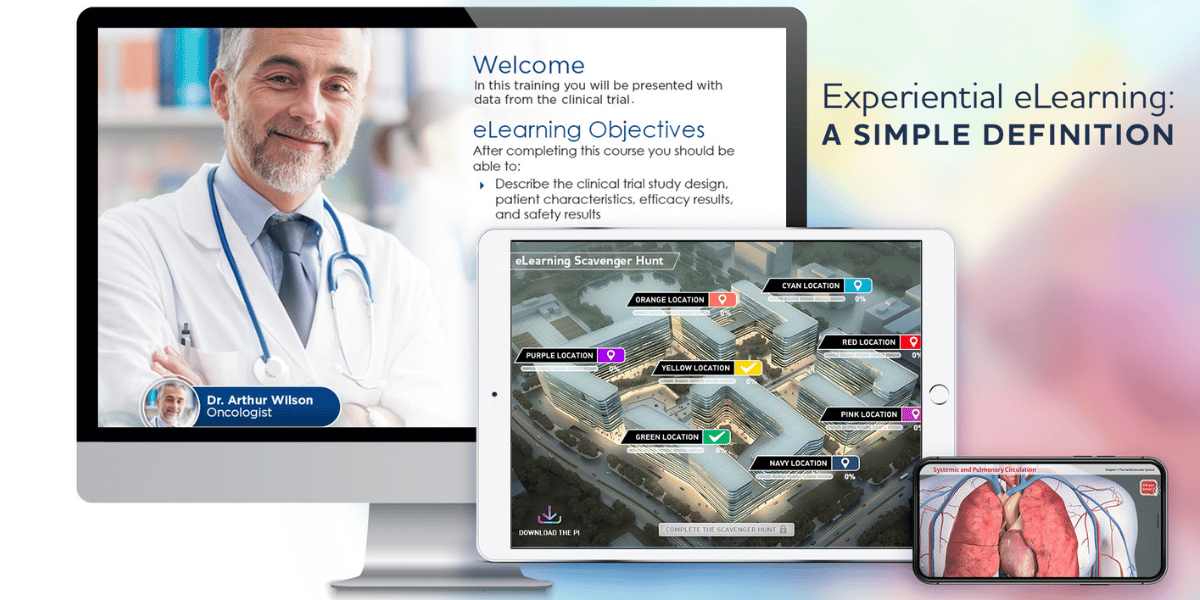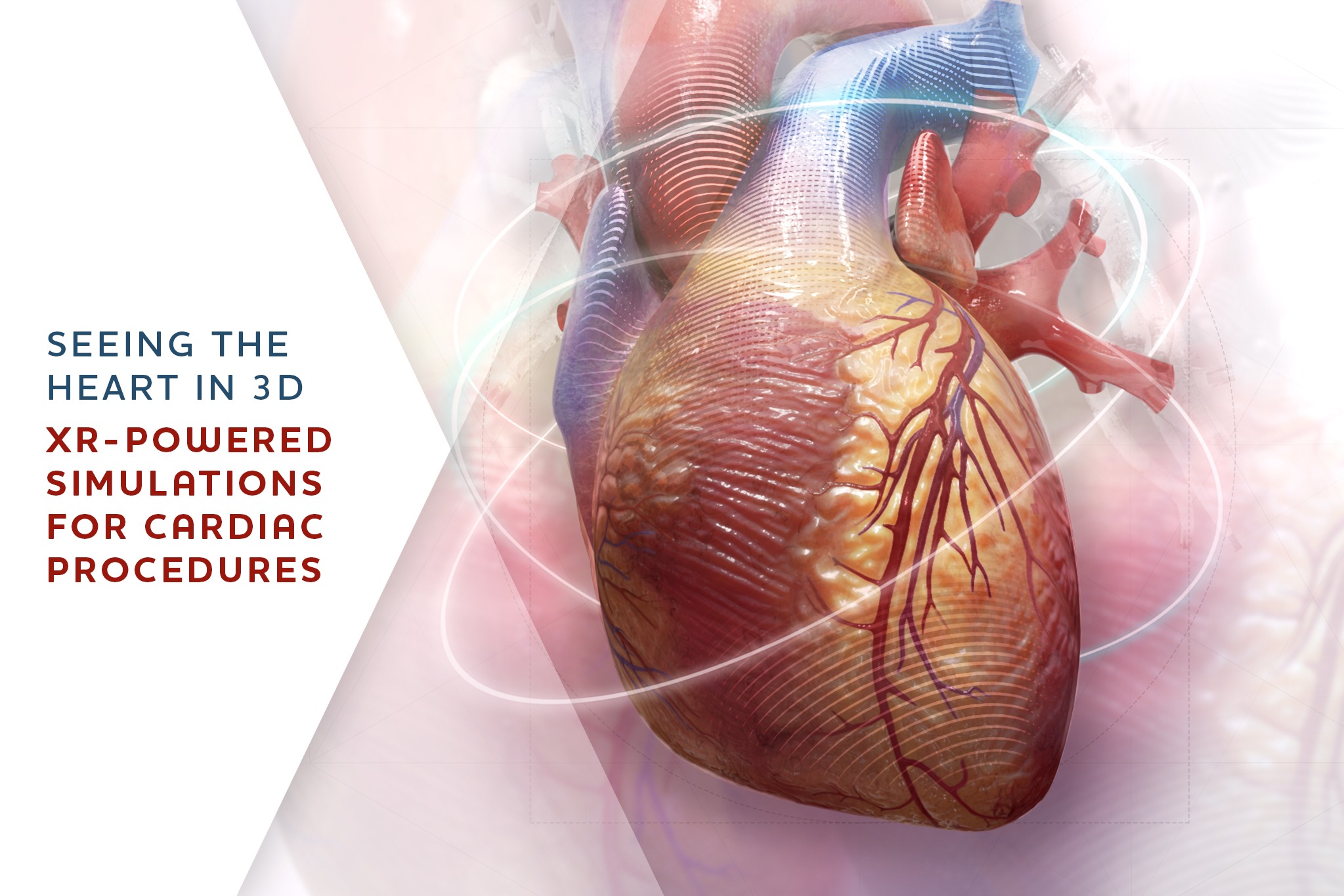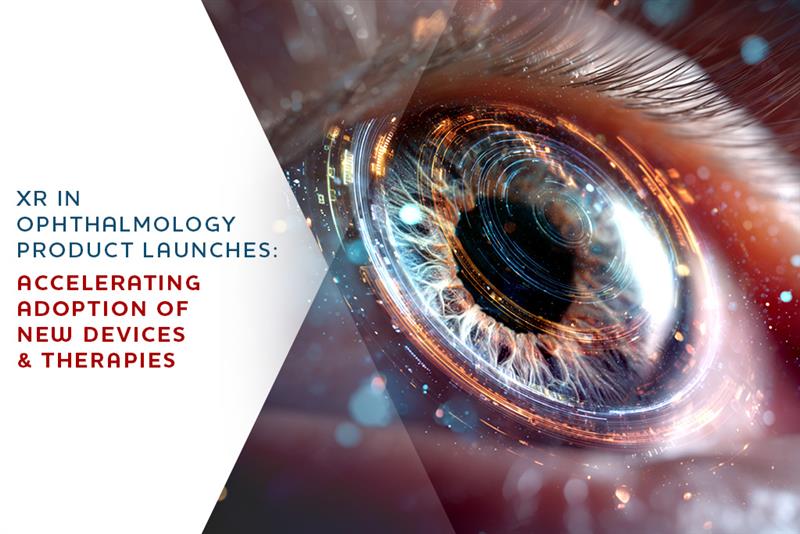As technology evolves, eLearning has become an increasingly popular method for healthcare professionals to enhance their skills and knowledge. However, traditional eLearning methods can often be dry and lack engagement. Experiential learning solves this problem by providing a more immersive and interactive learning experience.
Experiential eLearning is the process of learning through interactive experiences that mimic real-life situations. Rather than simply reading or listening to information, learners engage in simulations, virtual reality environments, and other interactive activities. In the healthcare industry, experiential eLearning is an effective way to improve the skills and knowledge of healthcare professionals.
Immersive Simulations: A Closer Look at Experiential eLearning in Healthcare
Experiential eLearning goes deeper than traditional online lessons by offering more engaging and effective learning methods through simulation-based XR applications. A study by the eLearning Industry found that interactive eLearning can increase retention rates by up to 60%.
For example, healthcare professionals can participate in simulations of medical emergencies to learn how to respond effectively in high-pressure situations. These simulations are as realistic as possible and provide learners with an opportunity to apply their knowledge in a risk-free environment. This allows learners to absorb information at their own rate while getting valuable training that could only be accessed by real-life experience before now.
Boost Your Learning: The Advantages of Experiential eLearning for Healthcare Professionals
Experiential eLearning provides several benefits for healthcare professionals, including improved engagement, retention, and application of knowledge. According to the American Association of Medical Colleges, experiential eLearning is an effective method for teaching clinical reasoning and decision-making skills. By putting healthcare professionals through simulation-based learning tools, you are allowing them to engage with the material in a way that allows them to build their own relationship with it. Each simulation is unique based on who is doing it.
One of the best examples of experiential eLearning in healthcare is virtual reality training for surgical procedures. By using VR applications to train, healthcare professionals can practice surgical techniques and improve their skills without putting patients at risk and creating an environment for people to make mistakes and perfect certain areas of weakness.
From Virtual Reality to Augmented Reality: The Many Faces of Experiential eLearning
Several types of experiential eLearning can be used in the healthcare industry, including virtual reality, augmented reality, and simulations. Healthcare providers and professionals are seeing the true benefits of using these powerful tools and enabling their staff to learn in a way superior to just reading books or watching videos.
One way VR is being used in healthcare right now is to train healthcare professionals in identifying, diagnosing, and treating mental health conditions. Healthcare providers can immerse themselves in virtual environments, bettering their understanding and ability to empathize with patients.
Innovative Learning: How to Implement Experiential eLearning in Healthcare Education
Implementing experiential eLearning in healthcare can be challenging due to the need for specialized equipment and software. However, the benefits of experiential eLearning make it a worthwhile investment, and the technology and operating software are becoming more and more readily available to the public.
Simulation-based medical education allows the implementation of protocol-based practice into the postgraduate training curriculum. Second-year medicine residents who had gone through simulator training were found to adhere to the American Heart Association guidelines 68% of the time, as compared with 44% of the time for traditionally trained third-year residents. Communication skills can be improved by demonstrating the value of speaking honestly and individualizing the language and approach of each resident.
Experiential eLearning is Better Than Ever
Experiential eLearning offers healthcare professionals an engaging and effective way to improve their skills and knowledge. By using interactive simulations and immersive environments, healthcare professionals can better understand real-life situations and apply their knowledge practically.
While implementing experiential eLearning can be challenging, the benefits make it a worthwhile investment for healthcare organizations. As technology evolves, experiential eLearning will continue to be a valuable tool for healthcare professionals to enhance their skills and knowledge.
Tipping Point Media is Here to Create the Experiential eLearning Simulation You Need
At Tipping Point Media, we specialize in providing cutting-edge experiential eLearning simulations that can help you enhance your medical knowledge and skills. Our simulations are designed to provide hands-on experience in a safe and realistic environment, allowing you to practice complex procedures and techniques without any risk to patients. We are here to help your staff improve their medical expertise, and our simulations can help you achieve your goals.
With our experiential eLearning simulations, you can expect high-quality graphics, realistic scenarios, and engaging content to keep you interested and motivated throughout your learning journey. Our simulations are accessible online, so you can learn at your own pace and convenience from anywhere in the world. If you’re ready to take your medical knowledge to the next level, contact our solution strategists to learn more about our experiential eLearning simulations today and see the difference for yourself!

![[Approved] Enhancing Cardiology Device Launches Through XR [2026]](https://tipmedia.com/wp-content/uploads/2026/02/blog_feb_2-3.jpg)

